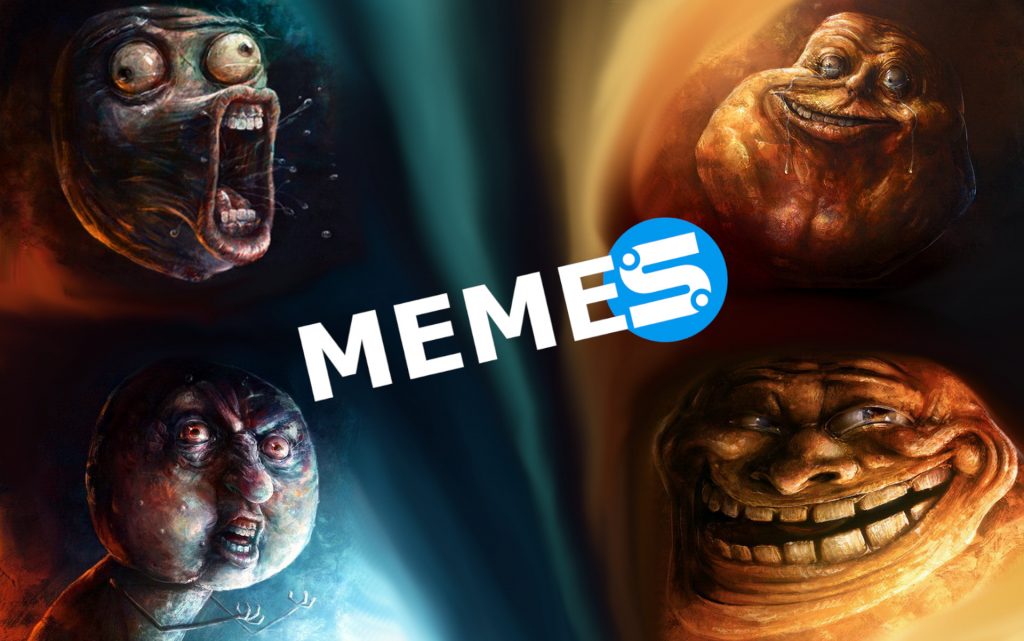A meme is an element of a culture or system of behavior that can be inherited by others through non-genetic means, especially through imitation. On the internet, a meme can be an image, video, text, and other humorous content that is distributed and copied. Copies are often made with slight variations to suit different internet interests and cultures. In its original purpose a meme is made with the aim of being spread quickly by Internet users.
The word meme comes from the Greek, and is an abbreviation of “mimesis” which means “imitation” or “copy”.
Usually a successful meme is so quickly distributed and modified in so many ways that it’s almost impossible to know who the original author of the main idea is.
Types of memes
Memes can be media such as a black and white drawing, cartoons, movie images, TV show images, and even in the form of videos.
A meme can be just a funny image, or a normal image, where there is a sentence that changes the meaning or real event in a comical way.
What makes a meme successful?
What makes a meme a success is the fact that it represents common situations in people’s daily lives represented in a funny way. However, as what may be very funny to a specific group of people, may not be funny to another group of people, memes are usually repurposed for different groups.
In this way, for example, the same image of a meme is reused with different phrases or lines to suit a specific audience.
The use of memes in Digital Marketing
As memes quickly go viral on the internet, and especially on social networks, reaching many people, many companies invest in creating memes to promote their products, brands or services. In this way, memes have become a Digital Marketing strategy.
Origin of memes
The concept of “meme”, different from what many think, is quite old. The first reference to the meme as we know it today would have been created by a zoologist and writer named Richard Dawkins in 1976. In his book “The Selfish Gene” he talks about the meme as a unit of information with the ability to multiply, through ideas and information that are passed from individual to individual.
The first internet meme probably originated in 1998, by Joshua Schachter, aged 24, on his website called Memepool. The focus of the site was for users to post interesting links from the internet.
